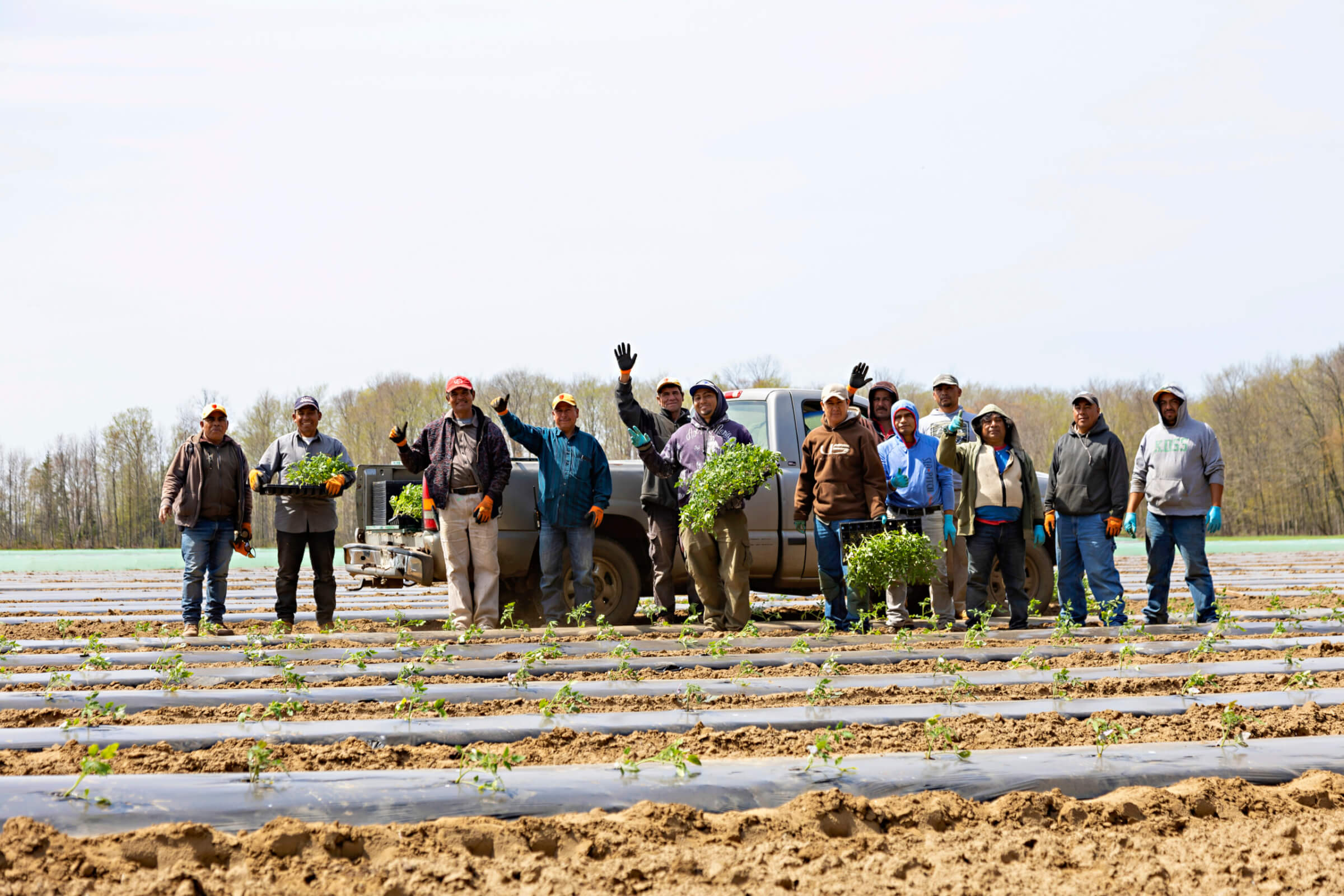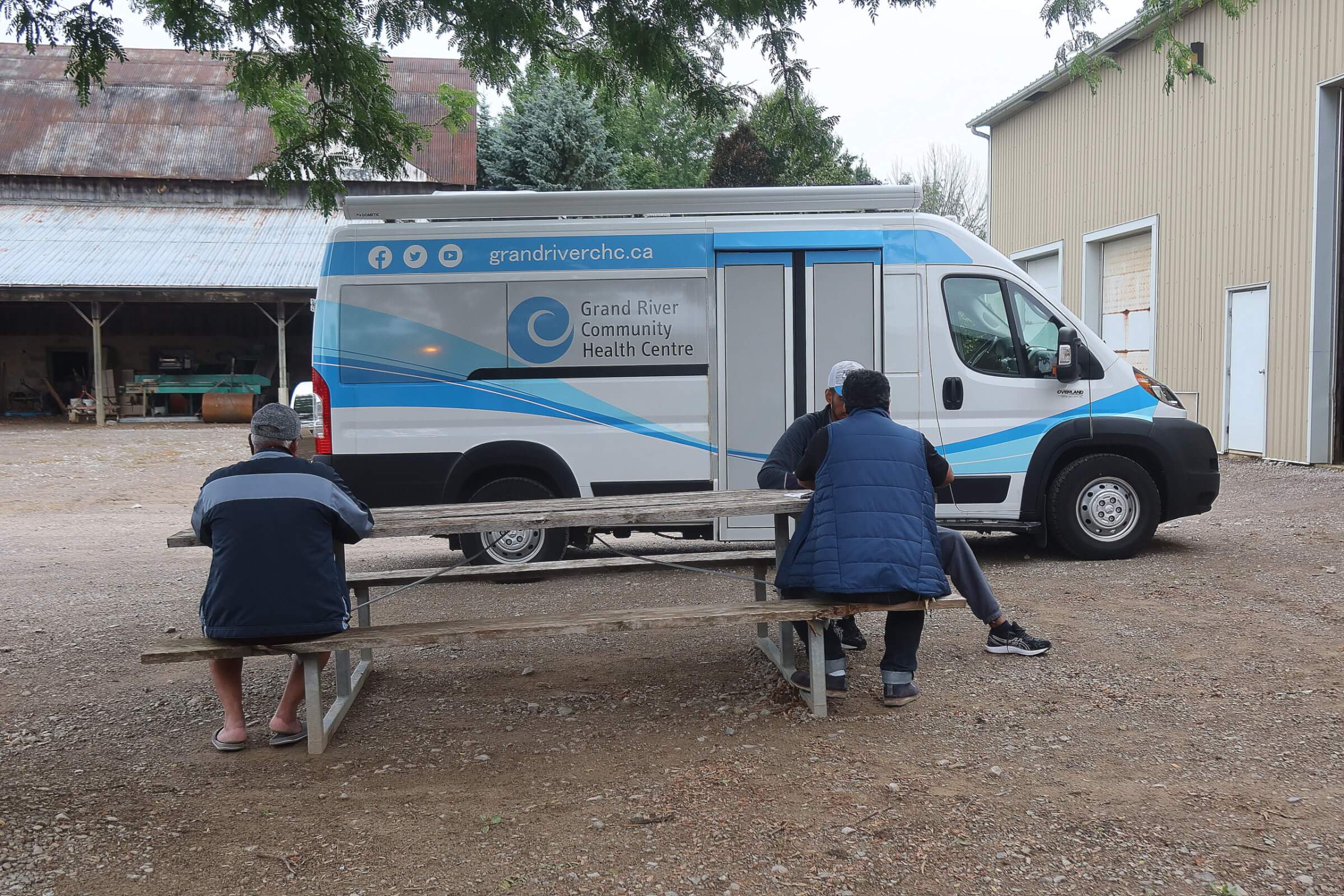For migrant farm workers arriving in Canada, securing a job in the agricultural sector offers a significant opportunity to earn income that may not be available in their home countries. For most workers, their primary motivation for coming to Canada is to improve their own lives and support their families back home.
Upon arrival, they often establish new friendships and form bonds that last a lifetime with fellow workers and with their employers. Afterall, many workers have been returning to the same farms for years, and in many cases, even decades!
Tony, a seasonal worker from Jamaica, has been working on the same vegetable farm for an incredible 41 years. According to Tony, it all comes down to the people.
“Incredible people! Here I work with good people, I keep coming back year after year and I always look forward to being with them. They are like my family away from home, and everyone takes care of each other,” he explains.
Leroy, a Jamaican worker at a tender fruit farm, shares a similar experience about returning to the same farm for 36 years.
“I’ve been coming here since 1987 and have always worked at this farm. In Jamaica, they gave us a card with information about the programs available to work in Canada. I decided I was going to try it. Here I am today, on the same farm 36 years later.”
This feeling isn’t unique to Tony and Leroy. It’s a common theme among both migrant farm workers and the farmers themselves. The relationship they share is often summed up in one word: family.
Josh Taminga, a strawberry farmer at TamBerry farms, is another example. He employs approximately 30 seasonal workers depending on the time of year. Having grown up around a greenhouse, Josh has developed long-standing relationships with many of them, some spanning over 15 years.
“I grew up in the greenhouse, so the people you work with become your friends,” he says. “You see them at church on Sundays; some came to my wedding. Seasonal workers have been intertwined throughout (my life) for the past 10-15 years.”
In the Seasonal Agricultural Worker Program (SAWP), farmers can request specific workers they would like to welcome back to their farm each year. This practice is extremely common and a recent survey even showed that four out of five workers on farms have been returning to the same farm for over five years.
The practice of hiring the same people back to a farm operation is so common that the SAWP program has a special recognition payment clause that employers pay to workers who return to the same farm for more than 4 years.
Despite the close bonds formed, nothing can truly replicate the families that these seasonal workers are separated from for months at a time. It’s a significant sacrifice, but one that most workers believe is worthwhile.
“It’s always hard leaving, but it’s worth it; when you make that decision, you must consider the benefits,” explains Eddie Gayle, who works with Taminga at TamBerry farms. “I usually don’t tell my family the date I am coming home. I like to surprise them; they anticipate I am coming home soon and getting excited. That’s the moment you look forward to, seeing the joy in your kids’ faces.”
While the distance can be difficult, technology has made it easier than ever for workers to stay connected to friends and families back home through video chats and phone calls. And each year, there’s a sense of comfort for so many of the workers knowing when they come back to Ontario, they are returning to their second families.

